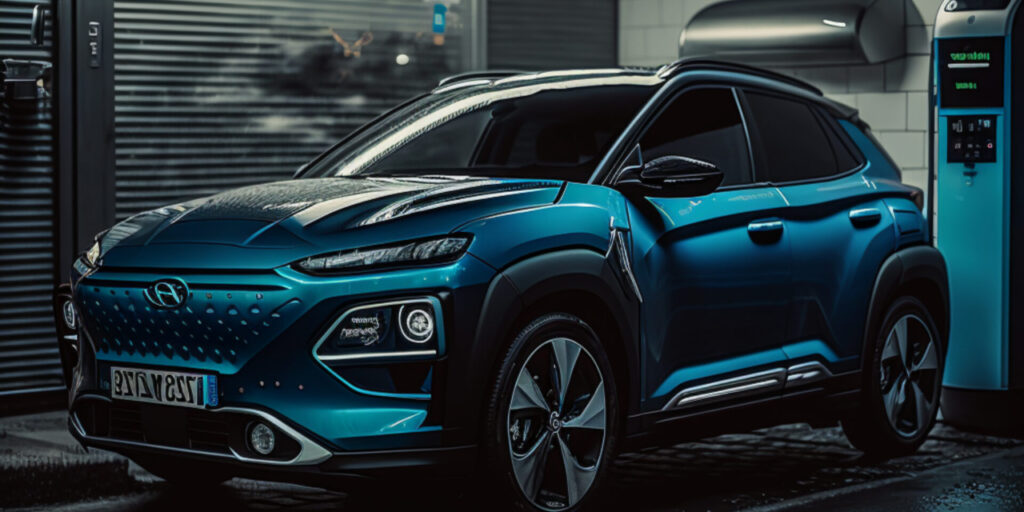Get the lowdown on everything electric cars before you make a purchase! Discover the pros, cons, and everything in between with our quick pit stop guide.
The Basics of Electric Cars
Electric cars, also known as EVs, are a type of vehicle that runs on electricity instead of an internal combustion engine. They have become increasingly popular in recent years due to their benefits, including reduced emissions, lower fuel costs, and improved performance.
In terms of technology, electric cars use a large battery pack to store electricity and an electric motor to convert the stored energy into movement. This electric motor can be more efficient than a traditional internal combustion engine, providing smoother acceleration and lower operating costs.
The charging process for electric cars is also much simpler than refuelling a traditional gasoline-powered car. Most electric cars can be charged at home using a standard electrical outlet or with a dedicated charging station. Fast charging stations, which can recharge an electric car’s battery to 80% in under an hour, are also becoming more widespread.
Electric vs. Petrol Cars: Pros and Cons
As the electric vehicle market continues to grow, more and more consumers are considering making the switch from petrol-powered cars to electric vehicles. But what are the benefits and drawbacks of each type of vehicle?
Pros of electric cars:
Zero emissions: Electric vehicles produce no tailpipe emissions, making them an environmentally friendly choice.
Low running costs: Electric cars are cheaper to operate than petrol vehicles as electricity is cheaper than petrol and maintenance costs are lower.
Government incentives: Governments around the world are offering incentives for EV adoption, including tax credits, subsidies, and free charging.
Quiet and smooth ride: Electric cars are known for their smooth, quiet ride, and instant torque, making them more enjoyable to drive.
Cons of electric cars:
Higher upfront cost: Electric vehicles can be more expensive to purchase than petrol vehicles, though this gap is closing as the technology becomes more widespread.
Limited driving range: Although this has improved in recent years, some electric vehicles still have a limited driving range compared to petrol vehicles.
Charging infrastructure: Although charging infrastructure is improving, finding a charging station can still be a challenge in some areas.
Battery degradation: Although electric car batteries are designed to last for many years, they may degrade over time and lose some of their capacity.
When considering whether an electric car is right for you, it’s important to weigh the pros and cons and think about your driving habits, budget, and priorities.
How Electric Cars Work: Understanding the Technology
Electric cars work by storing energy in a battery, which is then used to power the electric motor. When you press the accelerator, the motor converts the stored electrical energy into motion to move the car.
The battery is recharged by plugging the car into a charging station or wall outlet. There are two main components of an electric car – the battery and the electric motor. The battery stores the energy, while the motor converts the stored energy into motion.
Battery Range and Charging: What You Need to Know
The driving range of an electric car is determined by the capacity of the battery and how much energy is used during driving. Most EVs can travel between 100-300 miles on a single charge, although this can vary depending on the model and driving conditions.
To charge an electric car, it must be plugged into a charging station or wall outlet. Charging time can vary depending on the charging station and the battery’s capacity, but it typically takes several hours for a full charge. Fast charging stations can charge the battery to 80% in just 30 minutes.

Cost of Ownership: Comparing Electric and Petrol Cars
The cost of ownership for electric cars is lower than for gasoline-powered cars in the long run due to lower fuel and maintenance costs. However, electric cars can be more expensive to purchase upfront. In terms of fuel costs, electricity is cheaper than gasoline, and EVs have fewer moving parts, which means less wear and tear and lower maintenance costs.
While the upfront cost of an electric car may be higher, the savings on fuel and maintenance can offset this over time. It’s important to consider both the upfront cost and long-term costs when comparing electric and petrol cars.
Government Incentives for Electric Car Owners
In the UK, electric car owners have access to several government incentives to help encourage the adoption of electric vehicles. One of the most significant incentives was the Plug-in Car Grant, which offered up to £3,000 off the purchase price of a new electric car.
However, this grant was axed in June 2022. Despite the end of this particular incentive, there are still other ways for electric car owners to save money. For example, electric car owners pay no Vehicle Excise Duty (VED) and enjoy cheaper parking and toll charges in some cities.
Battery Longevity: How Long Will Your Electric Car’s Battery Last?
One of the most common concerns about electric cars is battery longevity. While it’s true that the batteries in electric cars will degrade over time, most electric car manufacturers offer warranties for their batteries that last for several years. For example, the battery warranty on the Nissan Leaf covers the battery for eight years or 100,000 miles, whichever comes first.
With proper maintenance and care, it is possible for electric car batteries to last much longer than the warranty period. However, the exact lifespan of an electric car battery will depend on several factors, including driving habits, battery capacity, and charging patterns.
Charging Infrastructure: Finding Charging Stations
One of the challenges of owning an electric car is finding charging stations when you need to refuel. While charging at home is convenient, there are times when you’ll need to find a public charging station.
Fortunately, there are several tools available to help electric car owners find charging stations. For example, the Zap-Map app provides a comprehensive list of charging stations in the UK and can help you find the nearest available charging station. Additionally, many charging networks, such as ChargePoint and Polar, offer their own apps to help drivers find charging stations and check their availability.
Performance and Handling: Driving an Electric Car
Driving an electric car is a unique experience compared to driving a traditional petrol car. Electric cars are known for their smooth and quiet ride, and they deliver instant torque, providing excellent acceleration.
In terms of handling, electric cars can be quite responsive, especially when compared to heavier petrol cars. Additionally, electric cars offer instant power, making it easy to navigate around slower traffic. However, electric cars are often heavier than their petrol counterparts, and this weight distribution can affect handling and ride quality.

Choosing the Right Electric Car: Models and Features
When choosing an electric car, it’s important to consider several factors, including range, charging time, and features. There are several different electric car models available, including city cars, SUVs, and hatchbacks. Some popular models include the Nissan Leaf, Tesla Model 3, and Volkswagen ID.4.
In terms of range, electric cars can offer between 100-300 miles on a single charge, and this will vary depending on the model and battery size. Additionally, charging time can range from 30 minutes to several hours, depending on the charging speed and battery capacity. Before choosing an electric car, it’s essential to consider your driving needs and preferences to find the right model and features for you.
Maintenance and Service: Keeping Your Electric Car in Top Condition
Electric vehicles require less maintenance than their traditional petrol counterparts, which is one of the advantages of owning an electric car. However, regular check-ups and servicing are still necessary to keep the vehicle running smoothly.
One of the key components of an electric vehicle is its battery, which should be checked for wear and tear regularly. Other components, such as the brakes and suspension, should also be checked and serviced regularly to ensure optimal performance. To keep your electric car in top condition, it is recommended to take it to a specialist electric vehicle service centre, where technicians are trained to deal with the unique components of electric vehicles.
Safety Features: Are Electric Cars Safe?
Electric vehicles have been designed with safety in mind and have undergone extensive testing and certification to meet stringent safety standards. Some of the key safety features of electric vehicles include anti-lock brakes, stability control, and airbags.
Additionally, electric vehicles are equipped with high-voltage safety systems, which are designed to protect passengers in the event of an accident. Electric cars are also considered to be safer than traditional petrol vehicles, as they have a lower centre of gravity, which makes them less prone to rollovers. The electric drivetrain is also located on the vehicle’s floor, which helps to protect passengers in the event of a crash.
How to Lease or Finance an Electric Car
There are a variety of financing options available for those who want to own an electric vehicle, including leasing and traditional financing. Leasing is a popular option for those who want to drive an electric car without committing to a long-term loan.
Leasing offers lower monthly payments than financing and allows you to drive a newer car without the large upfront cost. On the other hand, financing gives you the option to own the vehicle outright and can be a good option if you want to keep the car for an extended period of time. To determine the best financing option for you, it is recommended to speak to a financial advisor who specializes in electric vehicle financing.
How to Insure an Electric Car
Insuring an electric car is similar to insuring any other type of vehicle, but there are some differences to consider. Electric vehicles typically cost more to insure than petrol vehicles, but insurance companies are becoming more competitive in this space, which is helping to bring down insurance costs. Additionally, some insurance companies offer special policies that cater specifically to electric vehicles.
To find the best insurance policy for your electric vehicle, it is recommended to compare quotes from a number of different insurance companies. Factors such as the make and model of the vehicle, your driving history, and the coverage you need will all impact the cost of your insurance policy.
Electric Cars and the Future: What’s Next for the Industry?
The electric vehicle (EV) market is rapidly evolving, and the future looks very promising for this environmentally friendly and efficient mode of transportation. As battery technology continues to improve, the range and performance of EVs will continue to increase, making them a more practical choice for more people.
In addition, governments around the world are continuing to provide incentives and subsidies to encourage the adoption of EVs, which will likely lead to an increase in sales.
Another exciting development in the EV market is the rise of autonomous vehicles. Many automakers are investing in self-driving technology and incorporating it into their electric vehicles, which has the potential to revolutionize the way we travel and commute. Furthermore, the increasing use of renewable energy sources to power EVs is helping to further reduce their impact on the environment.
Overall, the future of the EV industry is very bright, and we can expect to see continued growth and innovation in this field for many years to come. As more people adopt EVs, we will see a reduction in greenhouse gas emissions, improved air quality, and a more sustainable transportation system.

Electric Cars for Businesses: Tax Benefits and Incentives
Electric vehicles (EVs) are becoming an increasingly popular choice for businesses, thanks to their many benefits and government incentives. By choosing EVs, businesses can take advantage of lower operating costs, reduced emissions, and tax incentives, which can help to improve their bottom line.
The UK government has committed £2.5 billion to vehicle grants and infrastructure for EVs, with £1.6 billion assigned to EV charging infrastructure and a goal to reach 300,000 public EV charge points by 2030.
£950 million has been allocated to a rapid charging fund for the rollout of at least 6,000 high-powered charge points by 2035, and £500 million is set aside to support local authorities in achieving high-quality EV charge point coverage.
The Workplace Charging Scheme (WCS) is a voucher program that provides up to £350 in discounts for the purchase and installation of electric vehicle charge points, with a limit of 40 sockets.
How to Sell or Trade in Your Electric Car
If you’re looking to sell or trade-in your electric vehicle (EV), there are a few key steps that you should follow to ensure a smooth and successful transaction. First, it’s important to research the current market value of your EV, so you have a good idea of what to expect when you sell or trade it in. This information can be found online, and you should consider factors such as the make and model of your EV, its age and condition, and its range and performance.
Next, you should prepare your EV for sale or trade-in by giving it a thorough cleaning and making any necessary repairs. You should also gather all of the relevant documentation, such as service records, ownership documents, and any warranties or guarantees so that you can provide them to the buyer.
Finally, you should consider your options for selling or trading in your EV. If you’re selling privately, you should be prepared to negotiate with potential buyers and be open to making a compromise on price. If you’re trading in your EV, you should consider which dealership or EV specialist will offer you the best deal, taking into account the trade-in value, the cost of any upgrades or accessories, and the overall experience of working with the dealer.
Is an Electric Car Right for You?
An electric car may be right for you if you’re looking for a more sustainable and eco-friendly mode of transportation. Electric cars produce zero emissions, which helps to reduce your carbon footprint and can be cheaper to operate than petrol vehicles in the long term, with lower fuel and maintenance costs. However, it’s important to consider your driving habits and needs before making the switch to an electric car.
If you have a long daily commute or frequently drive long distances, you may want to consider a car with a longer range. On the other hand, if most of your driving is within the city, an electric car may be a perfect fit. Additionally, if you have access to home charging, you’ll be able to take advantage of lower charging costs and reduce your dependence on public charging stations.
Ultimately, whether an electric car is right for you will depend on your individual circumstances, including your budget, driving habits, and personal values. If you’re concerned about the environment, enjoy driving smoothly and quietly, and are looking to save money on fuel and maintenance costs in the long run, an electric car may be the perfect choice for you.
On the other hand, if you have long daily commutes or frequently drive long distances, you may want to consider a different type of vehicle or wait for further advancements in electric car technology.
